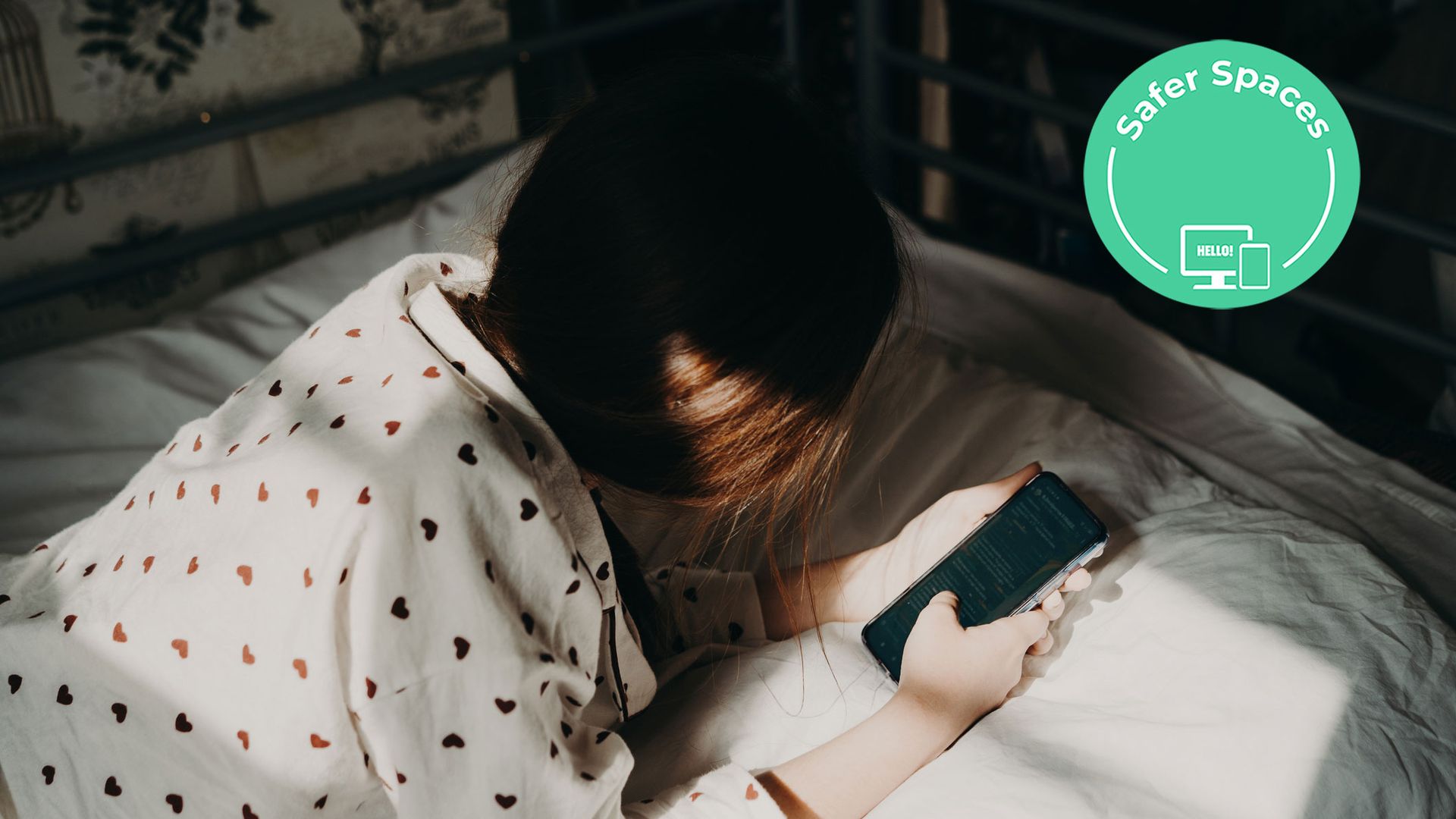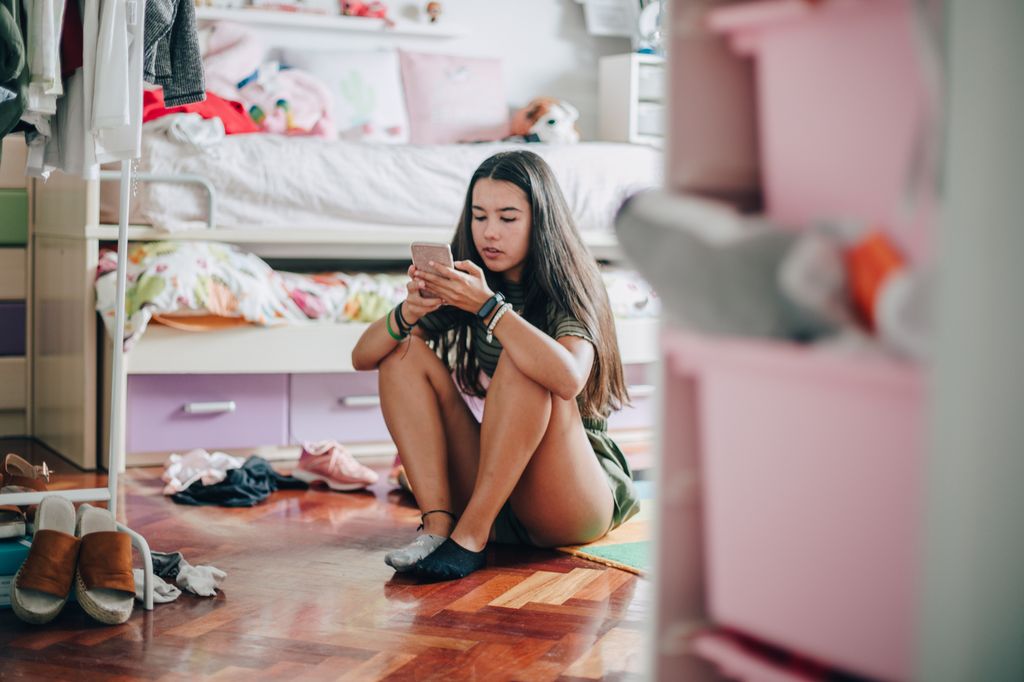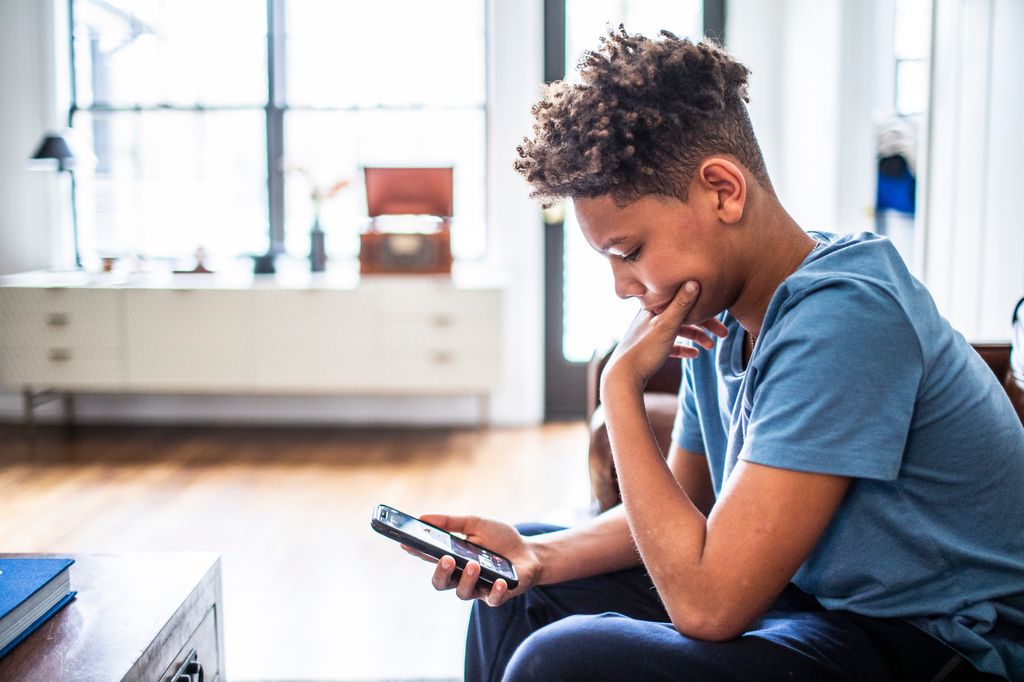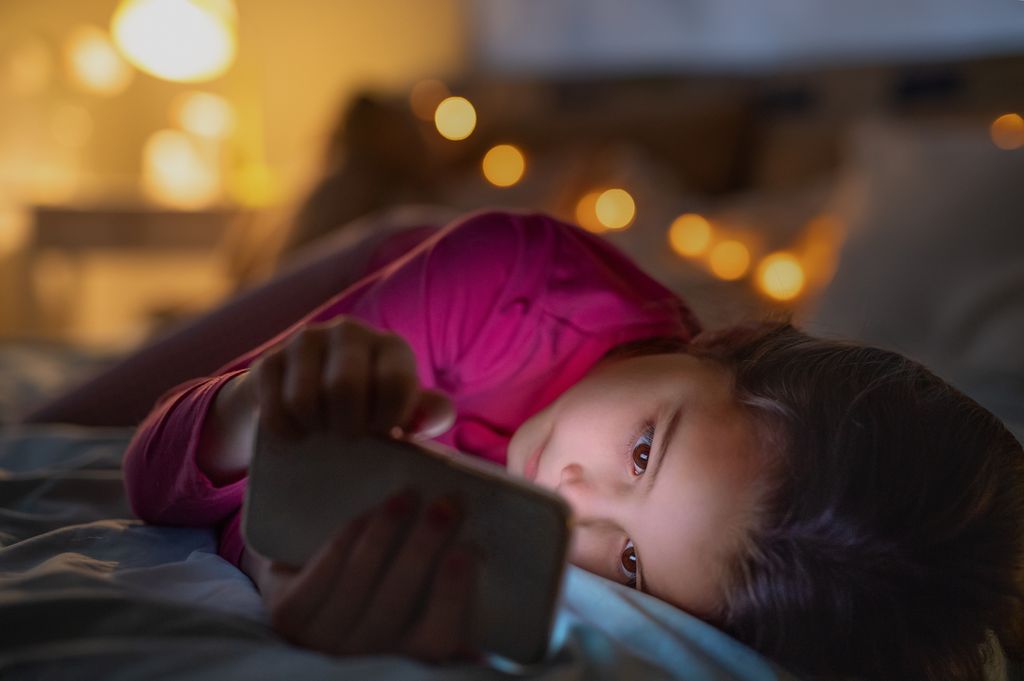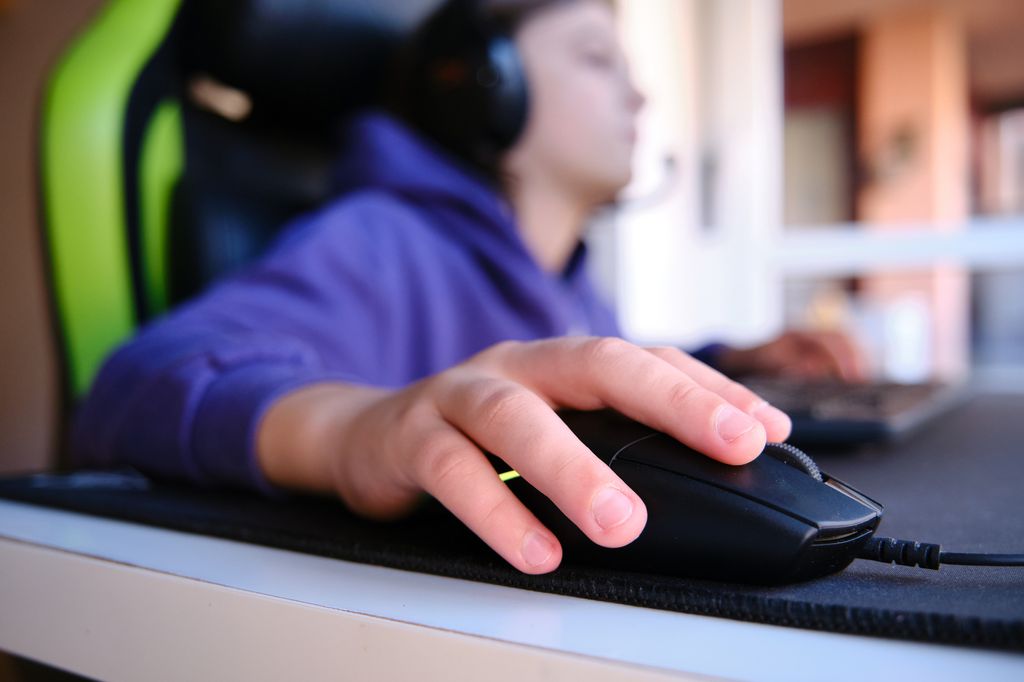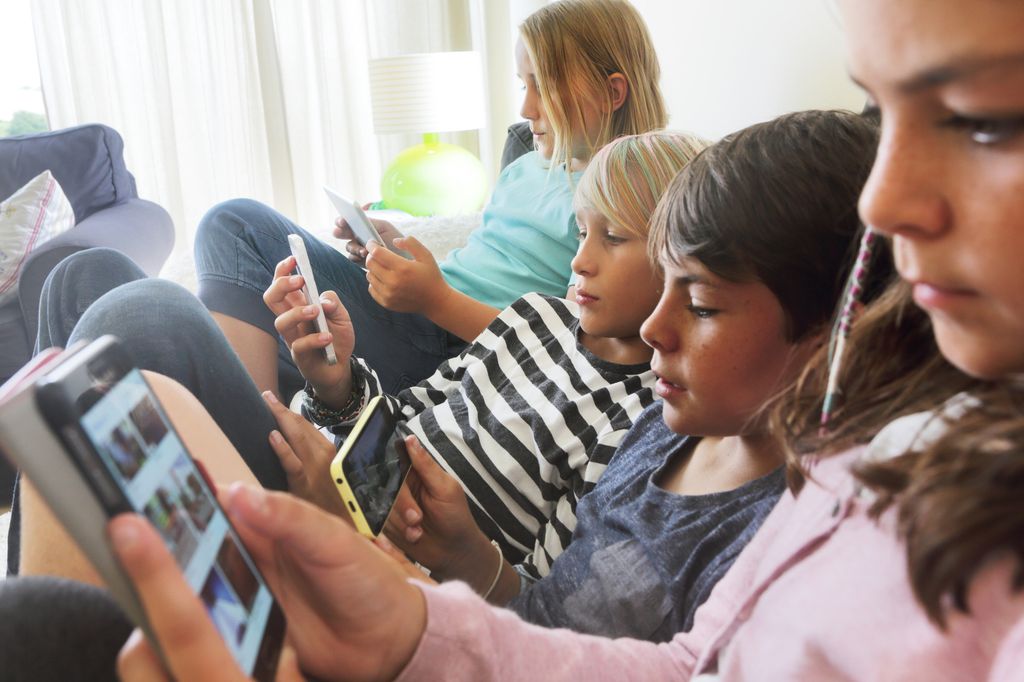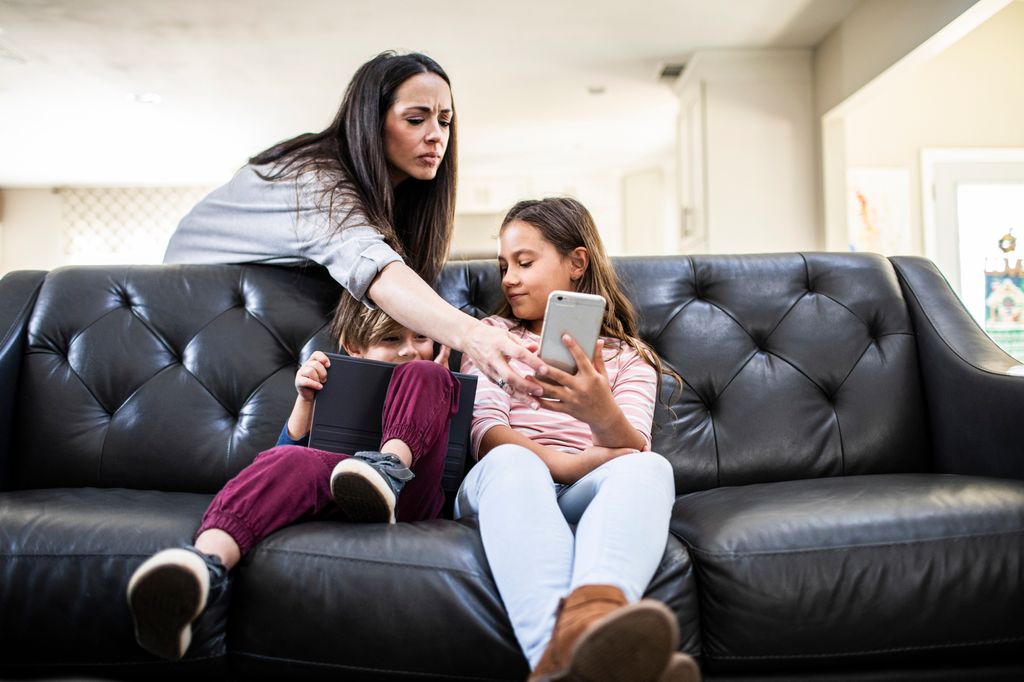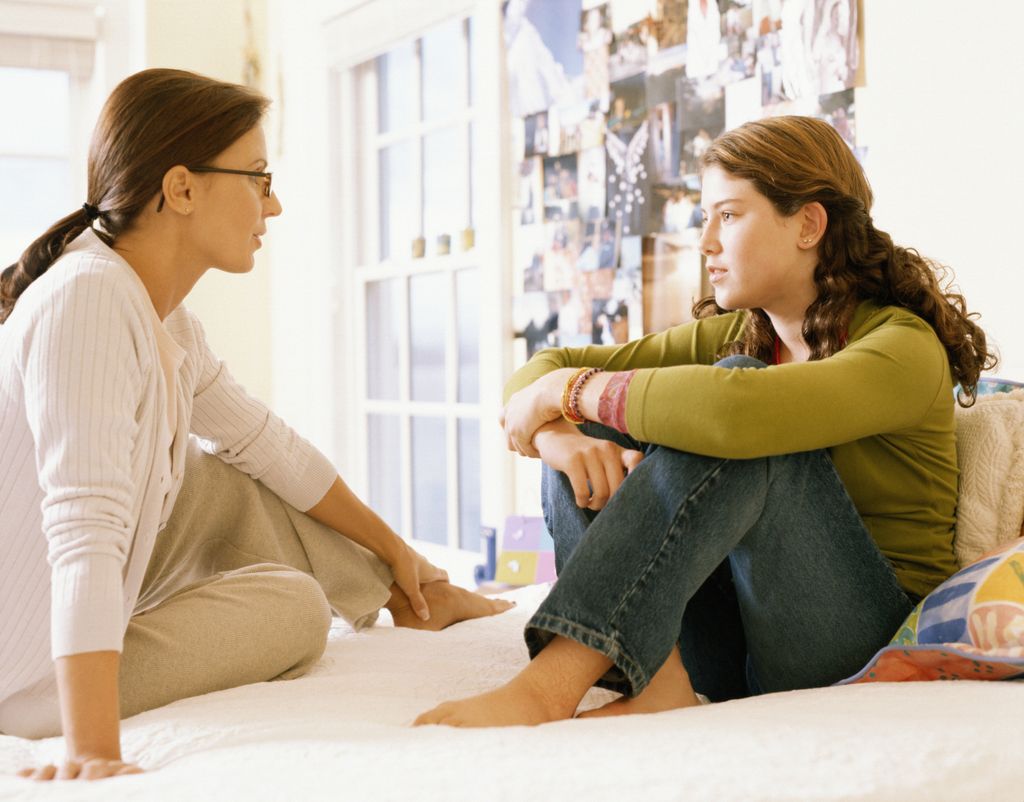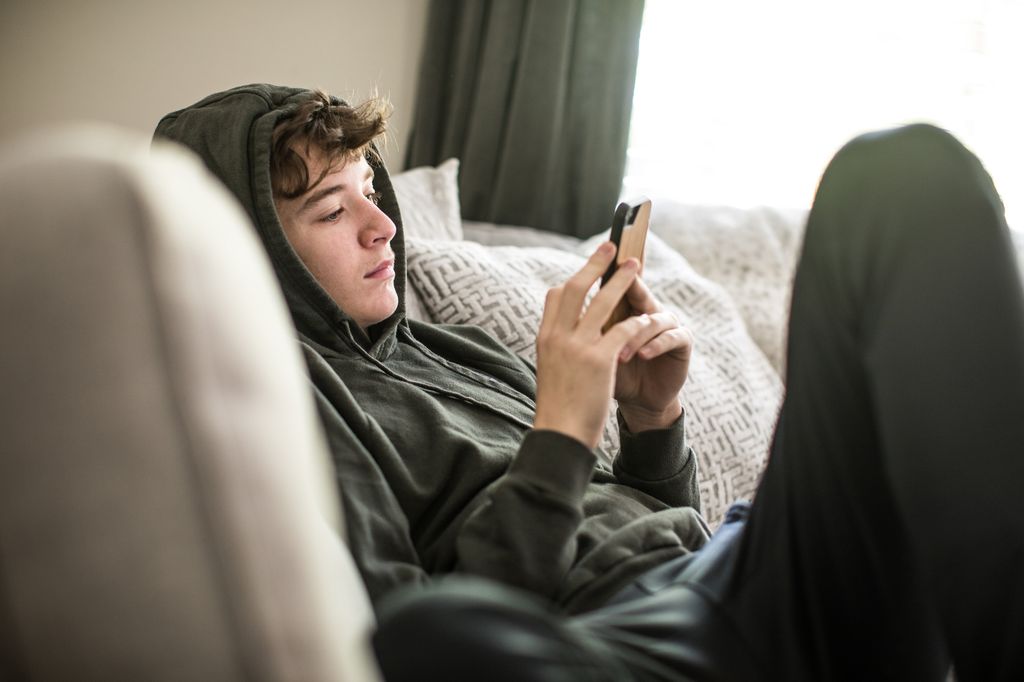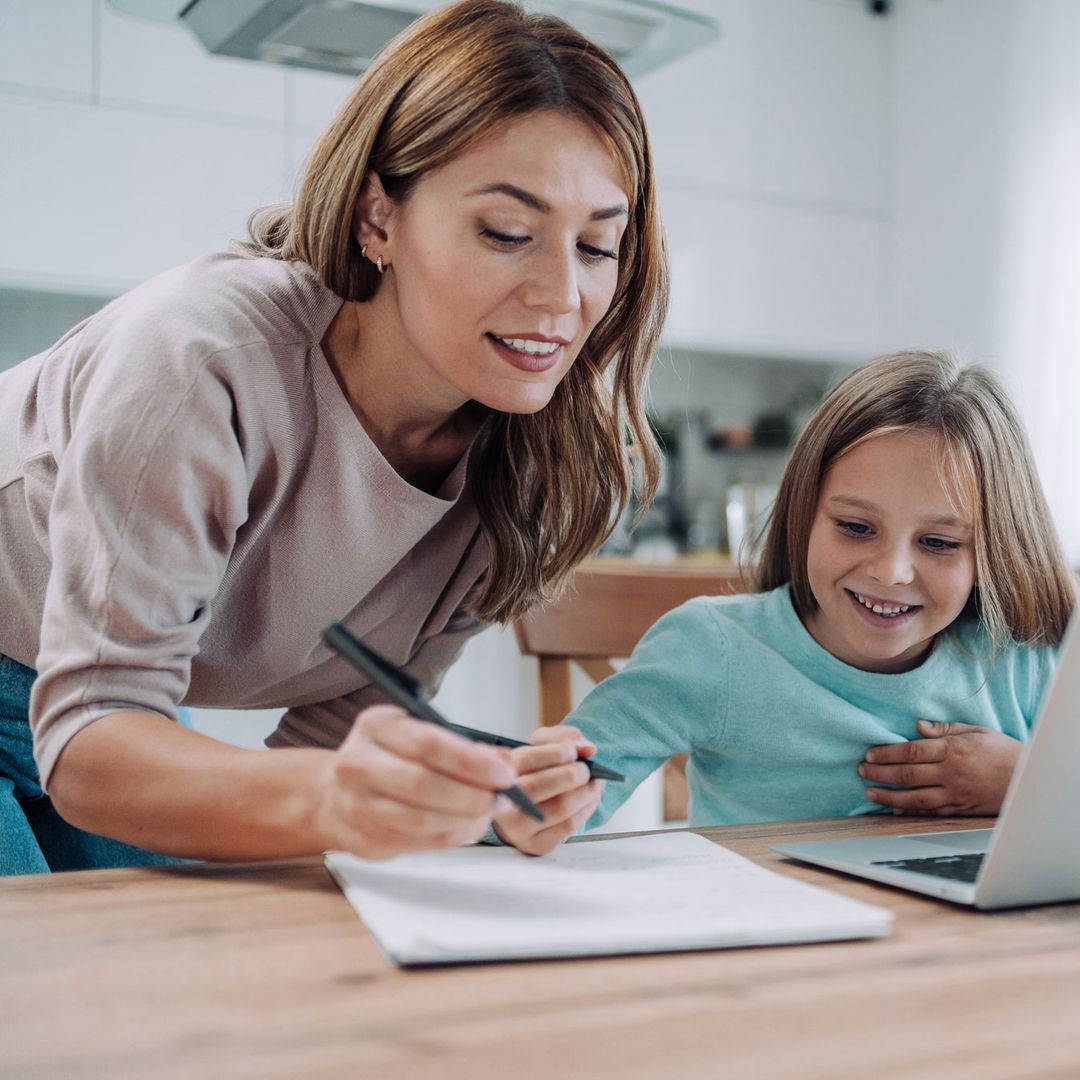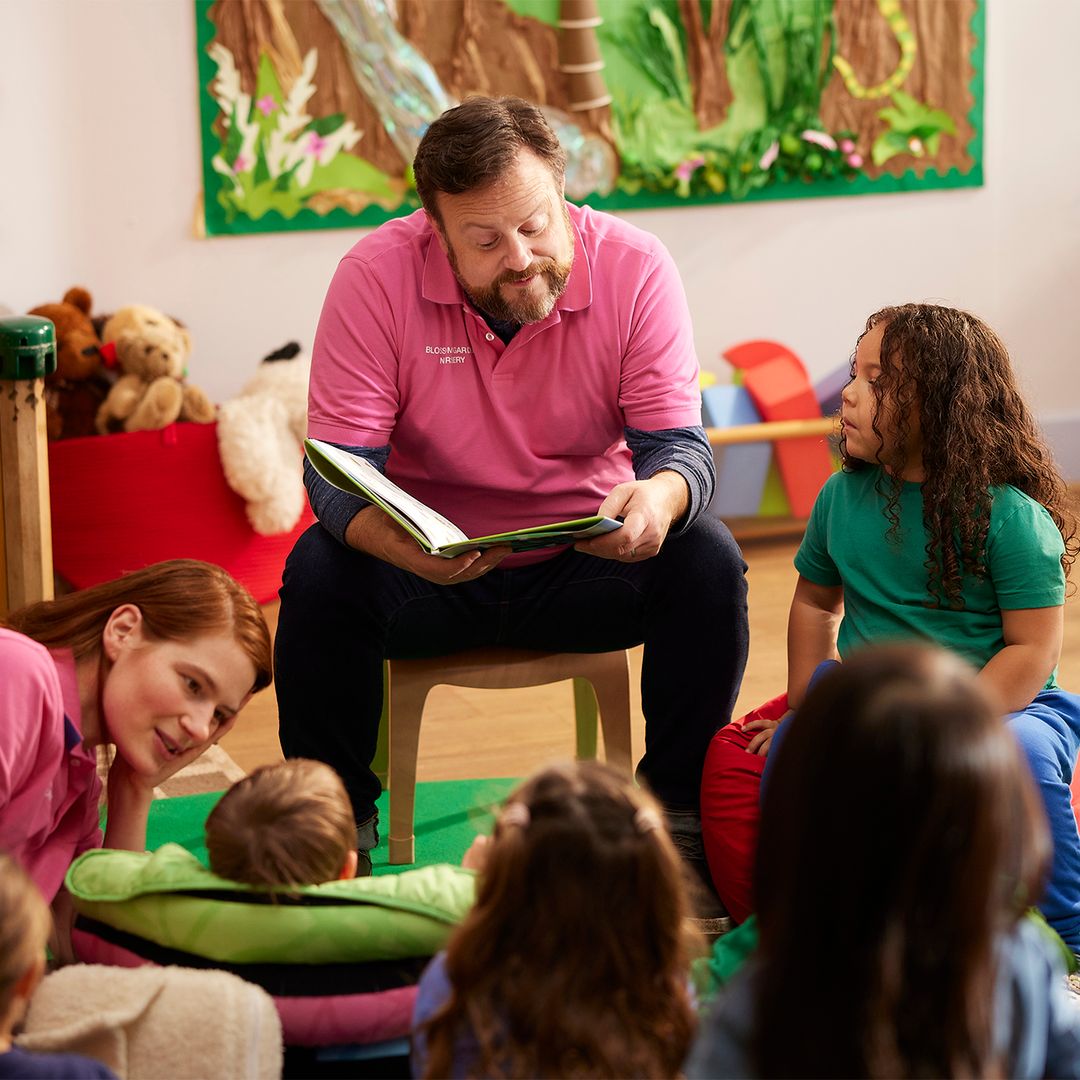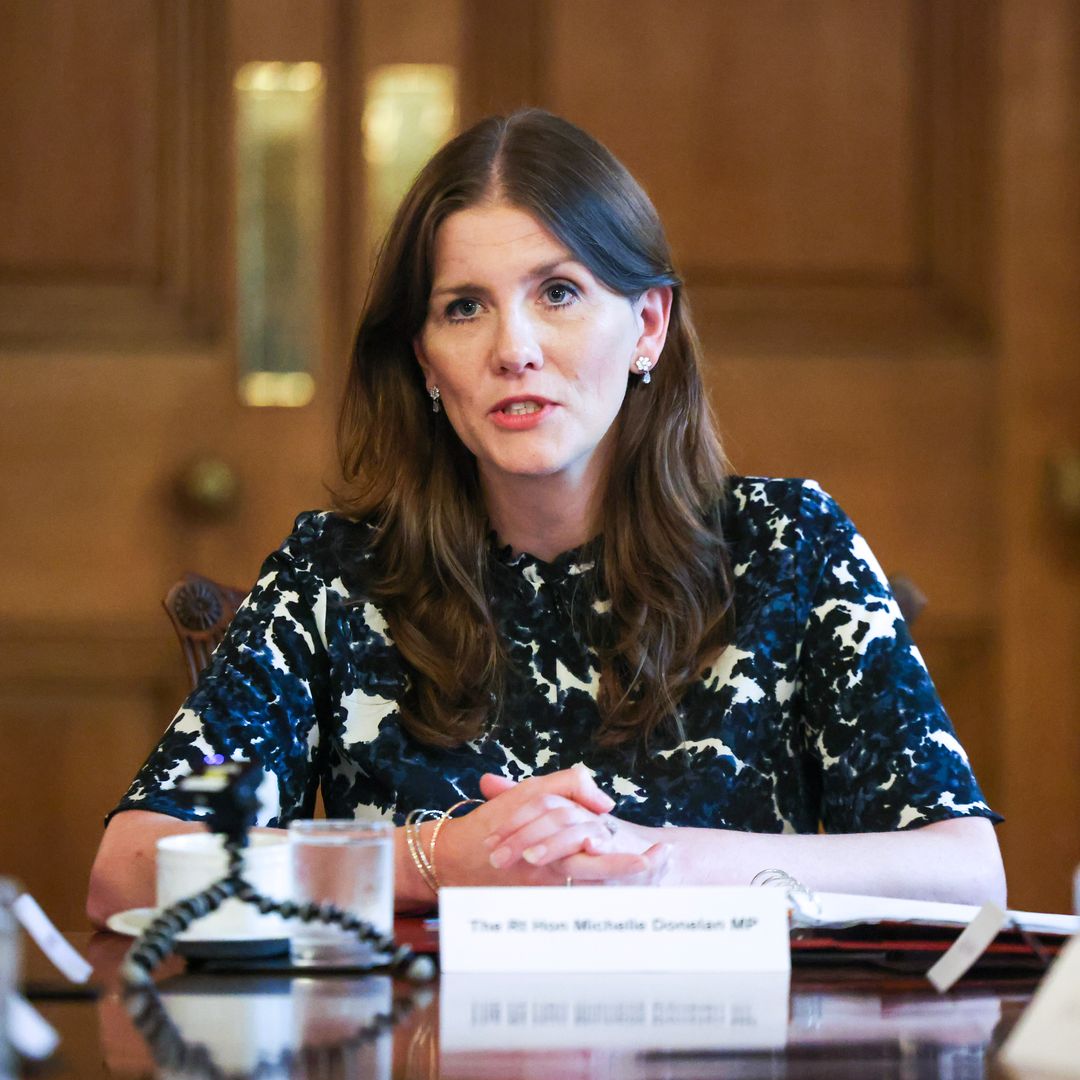How to effectively keep their children safe online is an issue many parents face. So many feel like they work as hard as they can to protect their children from the bad in the world at home and that their children's teachers do the same at school. And yet, internet safety continues to be a minefield, and often a source of concern for parents when it comes to allowing their children freedom with online platforms.
A new study was released earlier this week that highlighted the most effective ways to help children handle online requests for indecent images and shed light on extremely concerning statistics around the number of young people being approached for indecent imagery.
The research was commissioned by the Home Office and carried out by experts at Anglia Ruskin University, using data from the Internet Watch Foundation (IWF) that focuses on cis-gendered girls aged between 11 and 13 years old. It found that "from 2020 to 2021, there was a 168 percent increase in the proportion of webpages displaying self-generated imagery found by the IWF. More than 80 percent of those webpages (147,188 out of 182,281) included images and videos of girls aged from 11 to 13 years old."
It is important to note that this doesn't mean that cis-gendered boys, transgender or non-binary children, aren't at risk, as well as children of other ages. The important advice shared can be used by parents to support any child.
This can be a difficult and emotional topic for parents to broach with their children. HELLO! sat down with Professor Sam Lundrigan of Anglia Ruskin University to discuss the findings and hear how parents can support their children around this serious issue.
When handling this issue with your children, the first thing Professor Lundrigan points out that parents must remember is how children's lives are so intertwined with the online world. "The starting point is for us as parents to understand that children do live their lives differently to we did growing up and that actually we need to be respectful of the fact that there are really positive social relationships and communications with others, understanding of the world comes from being online."
She says parents should "ackowledge the benefit that online space can offer young people." However, the flipside, she says, is "that we need to look at it to provide the knowledge and skills they need to navigate these spaces so teaching them digital literacy - a lot of that should come from schools." The professor says that these conversations should be happening with children younger than 11 and that children as young as seven years old are increasingly appearing in indecent videos.
Professor Lundrigan says that it is important to create open communication with your child around this issue and to ensure your child feels they can speak to you if they are ever uncomfortable with something they see or interact with online, and that parents don't seek to control their children. "It's about not going straight for the controlling measures like taking the phone away or only allowing phone to be used in the presence of a parent," she says. "There is definitely a place for monitoring, but not controlling. It's about trust and empowerment. Especially with young girls. I think young girls grow up often being blamed for things and having to take responsibility for stuff."
She continues: "We need to empower young girls to have the confidence to use the internet and also empower them to be able to say no and when they see something or feel something that they are uncomfortable with, be empowered to say no and do something about it whether that is blocking the content itself, reporting it to whoever they are comfortable reporting it to."
The expert says that it is important that parents try to not react with anger if their child does come to them and say that they have sent an indecent image to someone online. "If there is a disclosure, it needs to be in a really supportive, trauma-informed way where whoever it being disclosed to, there is no blame, there is no judgment, there is just support," she says. "With true fear and concern about what might have happened, parents might respond by saying 'Why did you do that? That's such a silly thing to do. Why did you let yourself get in that situation?' but that we really don't want that because that will just shut children down and lines of communication are really important."
She gives advice for handling those conversations sensitively with your child - "Prioritise positive talking over controlling measures. Make sure conversations are meaningful or open, non-judgmental, and normalised. The biggest thing we found about the importance of fostering open and positive communication between girls and their parents… parents' attempts to talk to their child about the topic are very unlikely to backfire even if the talk doesn't go well."
She explains that even if a parent doesn't feel like a conversation that seeks to teach the child about saying no to and blocking a perpetrator and reporting it to a trusted adult doesn't goes to plan, if the child is embarrassed to talk about it or despondent, that child will still know that if there is ever anything they experience online that makes them feel uncomfortable, they have an adult they can confide in. "There is no right time to talk to your child about something like this but it's about giving the space for those conversations," the professor adds.
If a child does respond to a perpetrator online by sending an indecent image of themselves, Professor Lundrigan also highlights that their school has a responsibility to support that child and their family. "Depending on the disclosure, if the child discloses to the school and this is not another child in the school…the school has a safeguarding responsibility that will kick in and the parents would be involved," she explains. "Once the disclosure is made it is about proceeding in a supportive and trauma-informed way so that whatever happens after that, if the police get involved, that the child and the child's needs are right at the centre."
She continues: "There could easily be a knee-jerk reaction where you have to call the police, and I'm not saying they shouldn't, but it's about taking that child on the journey." Part of that journey is ensuring that parents are aware of the IWF's 'report remove' function. Once it is reported to the IWF that a child has sent an indecent image of themselves, the IWF will step in and work to remove it from the internet. The professor reminds us of the importance of this tool as "every time their image is shared, it is like being victimised all over again".
Professor Lundrigan's key piece of advice that parents should pass on to their children in terms of handling a request in the first place is this - "If you get a request from anyone for nude imagery or video, say no, block them, and tell somebody, whoever you feel comfortable telling."
The research shows how prevalent this issue is and helping your child work through an experience of this nature is about open dialogue at home, open dialogue with the school, and open dialogue with other parents. "As a parent to even think about it [is difficult] but there tends to be an othering of it, that it happens over there and it doesn't happen here, and that child sexual abusers are this idea of a dirty old man in a raincoat skulking on the street corner. We know now that predators are everywhere as we've established with this research," the professor says.
"If children do do that [send images] and it does happen, this is not their fault. These offenders are really clever, this is what motivates them and they are so good at coercing and grooming young people. So if it does happen the absolute important thing to know is this is not your fault," she says, something parents should remind their children of if they are in this situation.
The professor says there is a wealth of expert-informed resources available to children and parents for handling this issue as it applies to them that can be found below - whether that be as a preventative measure or in response to a personal experience. "The bigger issue here is we need to be talking about these issues far more freely as a society. Child sexual abuse really is the last taboo," she says reminding us that education and discourse around the issue at school and at home is a vital preventative step.
DISCOVER: Half of UK children experience bullying at school – here's how to help
